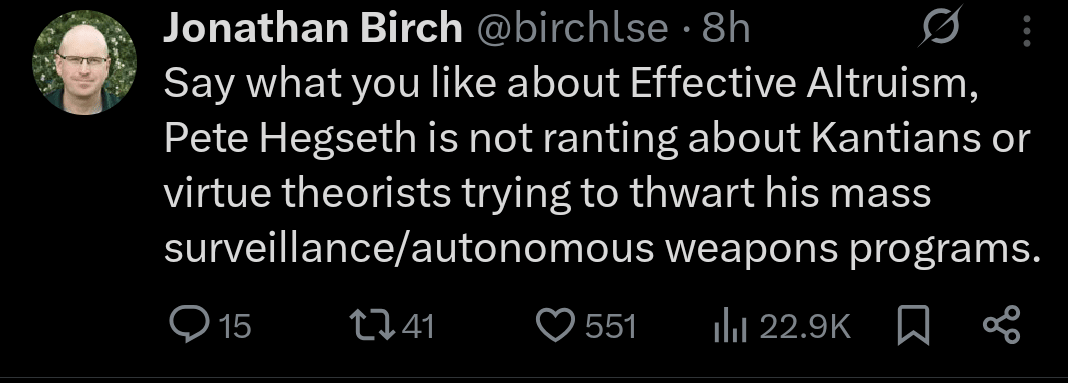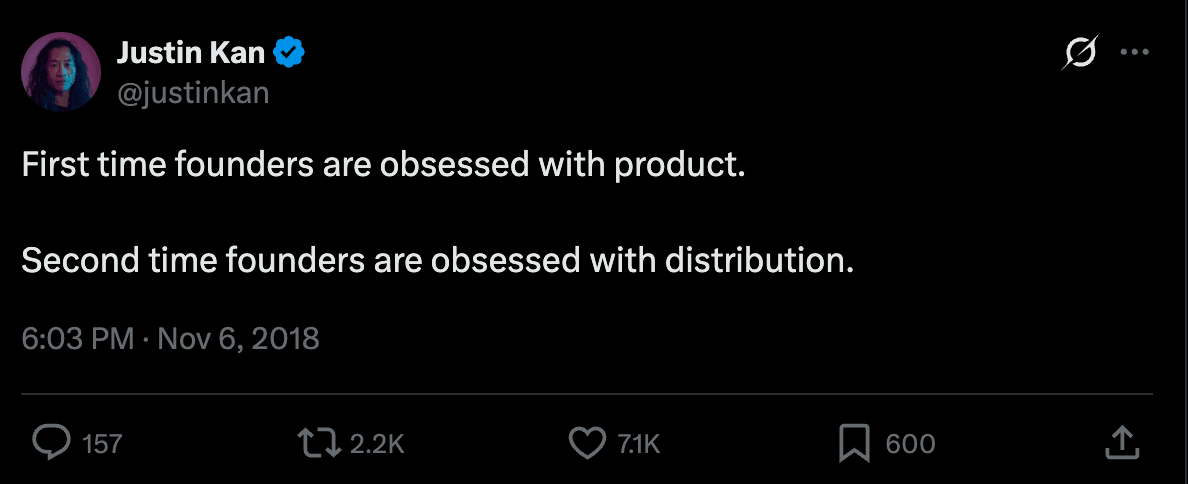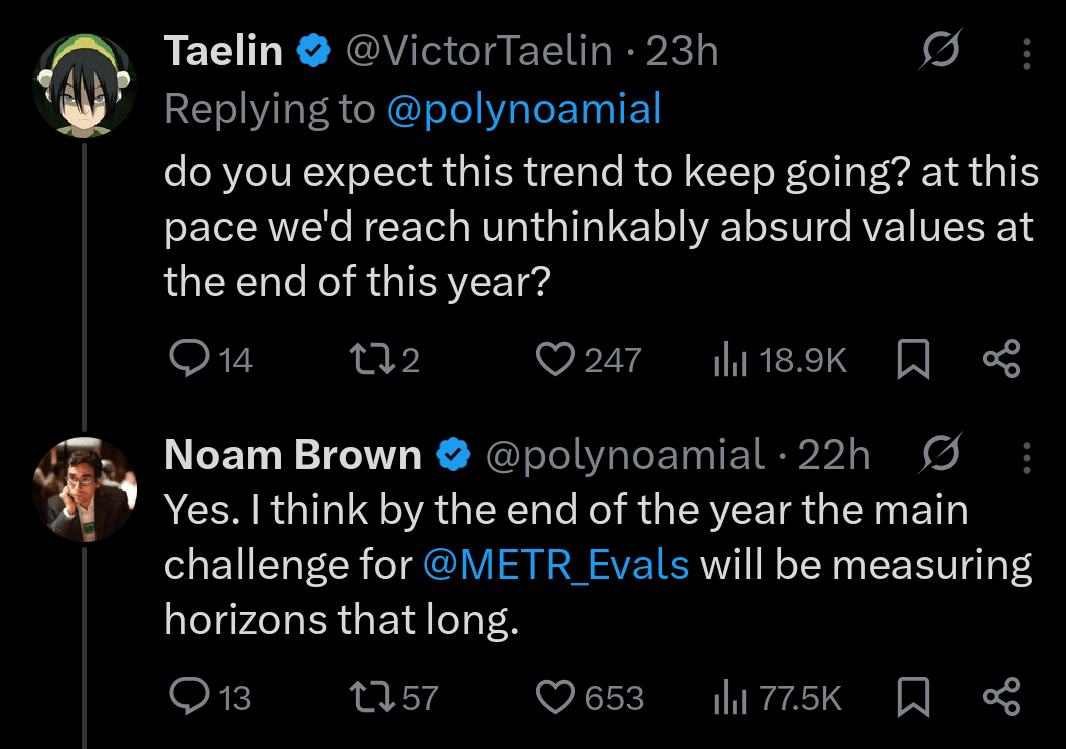
Ben_West🔸
Bio
Non-EA interests include chess and TikTok (@benthamite). Formerly @ CEA, METR + a couple now-acquired startups.
How others can help me
Feedback always appreciated; feel free to email/DM me or use this link if you prefer to be anonymous.
Posts 91
Comments1196
Topic contributions6
To decompose your question into several sub-questions:
- Should you defer to price signals for cause prioritization?
- My rough sense is that price signals are about as good as the 80th percentile EA's cause prio, ranked by how much time they've spent thinking about cause prioritization.
- (This is mostly because most EAs do not think about cause prio very much. I think you could outperform by spending ~1 week thinking about it, for example.)
- Should you defer to price signals for choosing between organizations within a given cause?
- This mostly seems decent to me. For example, CG struggled to find organizations better than Givewell's top charities for near-termist, human-centric work.
- Notable exceptions here for work which people don't want to fund for non-effectiveness reasons, like politics or adversarial campaigning.
- Should you defer to price signals for choosing between roles within an organization?
- Yes, I mostly trust organizations to price appropriately, although also I think you can just ask the hiring manager.
the strength of this tail-wind that has driven much of AI progress since 2020 will halve
I feel confused about this point because I thought the argument you were making implies a non-constant "tailwind." E.g. for the next generation these factors will be 1/2 as important as before, then the one after that 1/4, and so on. Am I wrong?
Interesting ideas! For Guardian Angels, you say "it would probably be at least a major software project" - maybe we are imagining different things, but I feel like I have this already.
e.g. I don't need a "heated-email guard plugin" which catches me in the middle of writing a heated email and redirects me because I don't write my own emails anyway. I would just ask an LLM to write the email and 1) it's unlikely that the LLM would say something heated and 2) for the kinds of mistakes that LLMs might make, it's easy enough to put something in the agents.md to ask it to check for these things before finalizing the draft.
(I think software engineering might be ahead of the curve here, where a bunch of tools have explicit guardian angels. E.g. when you tell the LLM "build feature X", what actually happens is that agent 1 writes the code, then agent 2 reviews it for bugs, agent 3 reviews it for security vulns, etc.)





I'm so sorry you had to go through this, Fran. Thank you for writing about it so clearly; this should never have happened.